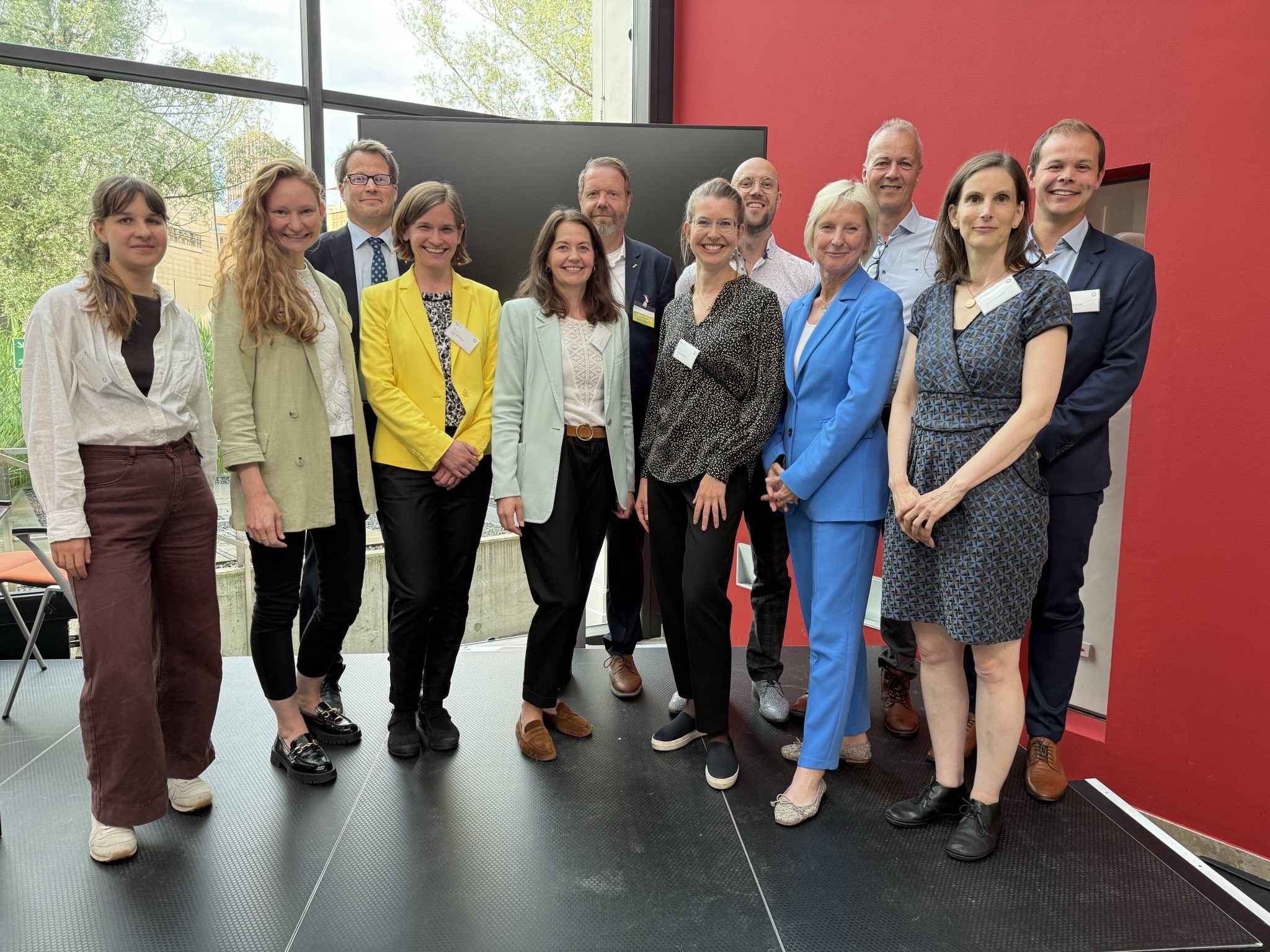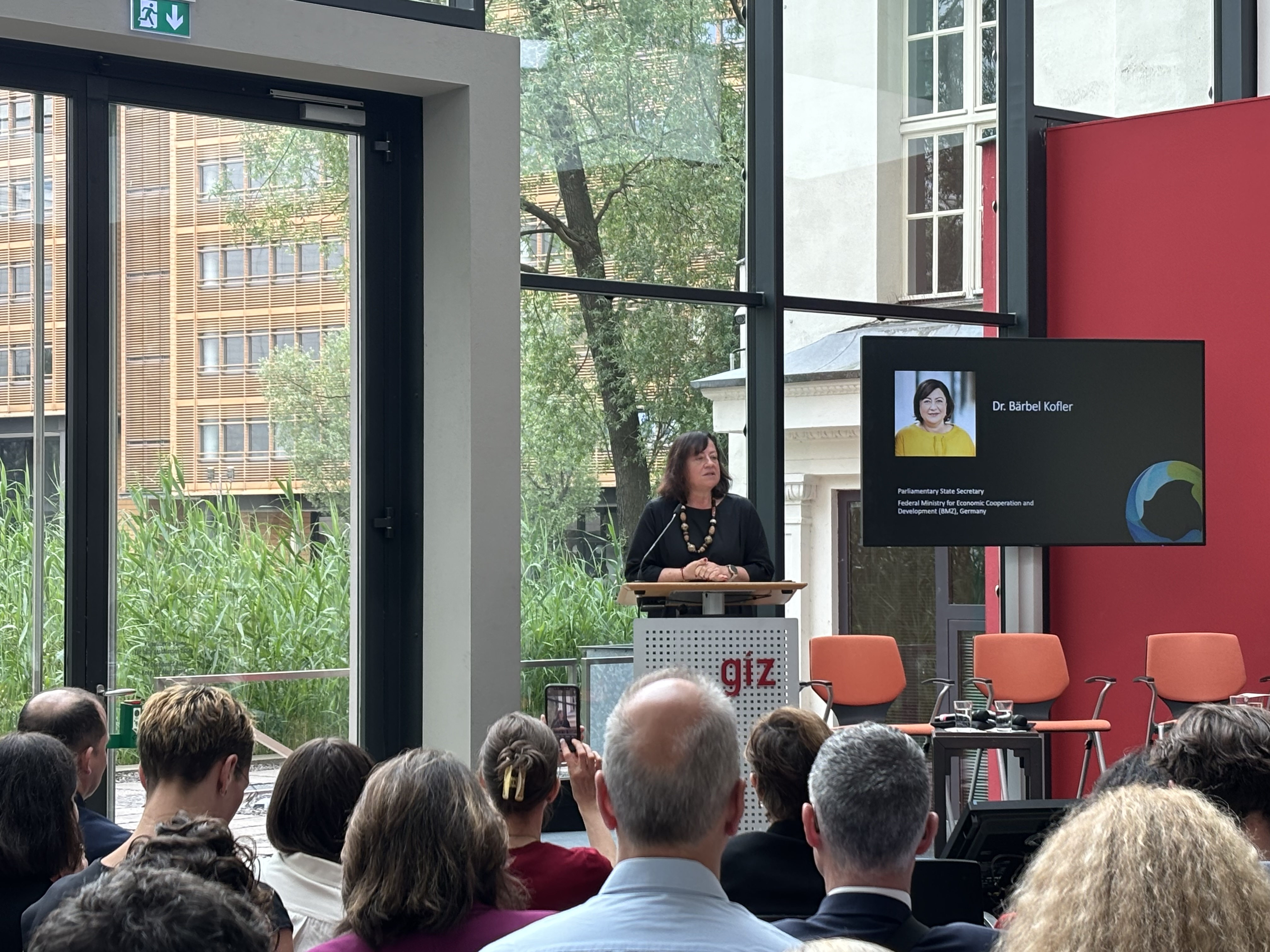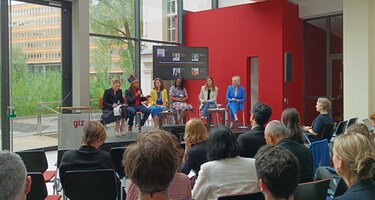ADP Multi-Stakeholder Meeting 2025 on Deforestation-Free Agricultural Supply Chains
The Amsterdam Declarations Partnership (ADP), a coalition of European countries promoting deforestation-free supply chains, held its annual Multi-Stakeholder Conference on June 5, 2025 - this time under the German chairmanship at the GIZ representation in Berlin, under the title: “10 Years of ADP and Only 5 Years to 2030! United for Global Zero-Deforestation Goals.”

At this year’s ADP Multi-Stakeholder Meeting 2025, around 100 international participants from politics, business, and civil society gathered from across Europe - including France, the Netherlands, Belgium, Spain, Denmark, Italy, Norway, and the United Kingdom - as well as from Brazil, Paraguay, Argentina, Ghana, and Indonesia. In the first half of 2025, Germany assumed the chair of the Amsterdam Declarations Partnership (ADP). Accordingly, the Federal Ministry for Agriculture, Food and Regional Identity (BMLEH), the Federal Ministry for the Environment, Climate Action, Nature Conservation and Nuclear Safety (BMUKN), and the Federal Ministry for Economic Cooperation and Development (BMZ), supported by the GIZ’s Sustainable Agricultural Supply Chains Initiative (SASI), jointly hosted this annual conference on deforestation-free supply chains—an exemplary case of successful cross-ministerial collaboration.
Key outcomes: Between global collaboration and support for the EU Deforestation Regulation

The Parliamentary State Secretaries at the BMZ and BMLEH, Dr. Bärbel Kofler and Martina Englhardt-Kopf, opened the conference. Kofler emphasized that the Amsterdam Declarations on deforestation-free supply chains and sustainable palm oil from 2015 - the founding moment of the ADP - have been crowned with great success, in contrast to some other international declarations: one central demand, namely EU measures against deforestation caused by EU consumption of agricultural commodities, has been fulfilled with the EU Regulation on Deforestation-Free Products (EUDR), also thanks to the efforts of the ADP members. “Ambitious efforts to curb deforestation are not a luxury, but a necessity,” Kofler emphasized, underlining the importance of the EUDR as a milestone for forest conservation.
In view of the recently reported record levels of deforestation in 2024, the participants emphasized the central importance of deforestation-free supply chains for climate, biodiversity, agriculture, and a just rural transformation. The further discussions in panel discussions and working groups focused on the relevance of cross-country and cross-stakeholder cooperation on the path toward deforestation-free supply chains. The ADP brings together various actors along global supply chains who are committed to action against deforestation and has once again proven this year to be an important platform for strengthening exchange among the most ambitious stakeholders.
There was great interest among participants in the topics of traceability, interoperability, and public digital infrastructure, as well as landscape approaches as risk-reducing measures in the context of the EUDR. Pascal Ripplinger, digitalization expert from SASI, emphasized in his presentation on the DIASCA Multi-Stakeholder Initiative: “Digital Public Infrastructure (DPI) is crucial for deforestation-free supply chains, as it provides a trustworthy and interoperable data basis as well as open-source components that enable and make more efficient transparency, traceability, and forest monitoring along global agricultural supply chains.”
In Berlin, the new ADP Partnership Statement 2030 was also presented, which reaffirms the shared goal of the ADP member states to work together with consumer and producer countries for deforestation-free supply chains of agricultural commodities. The new ADP Partnership Statement reaffirms ADP’s support for regulatory and voluntary measures for deforestation-free agricultural supply chains, emphasizes the need for partnerships between consumer and producer countries as well as various stakeholders, and also advocates for the social dimension of sustainability by supporting smallholder farmers and the rights of Indigenous groups and local communities.
Among the participants, there was broad support for the EU Deforestation Regulation (EUDR). In particular, partner governments, as well as Nestlé and the multinational wood processor Danzer, spoke out in favor of the EUDR. Nestlé, for example, emphasized that it rejects any adjustments to the EUDR, including postponement and the “zero-risk” variant demanded in some places, and instead calls for planning and legal certainty. In Brazil, the information and data collection within the framework of the EUDR could significantly facilitate the enforcement of the national Forest Codes and thus contribute to the protection of forests. Jochen Gebauer, Head of Department at the BMUKN, also welcomed the EUDR in his closing statement as one of the most innovative and boldest steps ever taken for forest protection.
